krishna pushkaram 2016
Celebrated once in 12 years
Start Date: 12th August 2016 ? End Date: 23rd August 2016 ? No of days Celebrated : 12 ?
 Pushkaram is an Indian festival dedicated to worshiping of rivers. It is also known as Pushkaralu in Telugu. In Telugu-speaking states, Pushkaralu is celebrated across Godavari, Krishna, Pranhita, and Penna rivers.
Pushkaram is an Indian festival dedicated to worshiping of rivers. It is also known as Pushkaralu in Telugu. In Telugu-speaking states, Pushkaralu is celebrated across Godavari, Krishna, Pranhita, and Penna rivers.
After the Ganga, Godavari and Brahmaputra, Krishna River which is also called as called Krishnaveniis the biggest river in terms of water inflows and river basin area in India. The river is almost 1,300 kilometers long and it is a major source of irrigation for Maharashtra, Karnataka, Telangana and Andhra Pradesh.
The Krishna river’s source is at Mahabaleswar near the Jor village in the extreme north of WaiTaluka, Satara District, Maharashtra in the west. It flows through the state of Karnataka before entering Telangana State and Andhra Pradesh States. Krishna River empties into the Bay of Bengal at Hamasaladeevi (near Koduru) in Andhra Pradesh, on the east coast.
The festival of Krishna Pushkaralu is celebrated once every 12 years to honour River Krishna and seek her blessings. Although the occasion is celebrated all over Telangana and Andhra Pradesh, the focal point of the festivities is the city of Vijayawada.
The festivities of Krishna Pushkaralu held in 2004, attracted over 30 million visitors to the city and ghats of Vijayawada. This year, the sacred 12 days festival of Krishna Pushkaralu begins on 12 August 2016 till 23 August 2016 in Vijayawada. Large crowds of visitors, tourists, saints, and priests are expected to attend the festival with great enthusiasm and thankfulness to our mother nature.
Durga Ghat is one of the most famous ghats to visit during the Krishna Pushkaram. which is spiritual and religious place where millions of people take holy dip in the river Krishna. Heavy rush is expected as more people prefer to take holy bath during krishna pushkaralu in Maa Durga Ghat.
It is strategically located near to Goddess Durga Devi temple which is a famous and must visit temple during this holy period. One of the best things is Durga Ghat in vijayawada is near to Kanaka Durga Temple. This ghat is also maintained by Sri Durga Malleswara Swami Varla Devasthanam, Indrakeeladri, Vijayawada.
In Telangana, following areas have been developed to receive visitors for the Krishna Pushkaralu 2016:
In Mahboobnagar District – Beechupalli, Rangapur, Alampur, Nadi Agraharam, Chintarevula, Nandimalla (Narayanpet), Krishna, Pasupula and Panchadev Padu (Maktal), Chellepad (Weepanagandla), Jataprole (Weepanagandla), Somasila (Kollapur), Malleswaram, Manchalakatta and Lingala.
In Nalgonda District – Wadapally in Damaracharla mandal, Mattapally in Mattampally mandal and Nagarjunasagar in Peddavura mandal, Mellacheruvu mandal, Utlapally in Peddavura mandal, Adavidevulapally in Damaracharla, Mahankaligudem in Nereducharla are locations for Pushkaram
Poojas conducted at Krishna Pushkaralu
Pindapradanam –
This is a unique ritual in which the devotee offers Pindas (leaf with offerings to the departed souls is set afloat in water) to ancestors who were deceased. It is done with the belief that their souls will be set free and attain salvation.
Mahasankalpam –
The Pooja is performed by priests on the banks of River Krishna for removing one’s bad karma and sins.
Laghusankalpam –
This ritual involves taking a holy dip in the River during Krishna Pushkaralu by uttering the names and gotras to appease God and fulfill your wishes in this life.
Sariganga Snanam –
This ritual is performed for a better family life, especially better relations with children and spouse.
Prayaschittam –
This ritual means that men and women accept their mistakes and misdeeds to God and seek forgiveness.
Gouri Pooja – Kumkum Archana and Gouri Pooja are performed to appease Goddess Gouri (Goddess Parvati) and seek her blessings during Krishna Pushkaralu.
Ganga Pooja –
It is believed that during the Krishna Pushkaralu period, water from the 12 holy rivers is divinely mixed with River Krishna. The Ganga Pooja is performed to seek the blessings of all the Rivers at once.
Musivayanam – It is a tradition in which a married woman is respected and treated with gifts. These gifts can also be offered to the husband when the wife dies. It is believed that by doing this Pooja, the wife’s soul can attain salvation.
- Take a dip in the River Krishna only at the authorized Bathing Ghats mentioned in the list above.
- Pilgrims should take a dip at the bathing Ghat that is nearest to them to avoid traffic hassles during Krishna Pushkaralu.
- Pilgrims must follow rules and regulations imposed at the Bathing Ghats as well as in and around the city to enable the smooth organisation and conduction of the festival..
- It is imperative that people visiting the city and the sacred Ghats remain alert and vigilant. Unidentified and unaccompanied baggage must be reported immediately to the nearest police official or security booth.
- Cleanliness and sanctity of the place should be maintained at all costs. Garbage and other kinds of refuse must be disposed of ONLY in dustbins.
- Pilgrims should arrive at the bathing Ghats with minimum baggage. It is the pilgrims’ responsibility to take care of their belongings.
Do’s
- Do not throw litter, bottles, clothes, flowers etc. into the river. Remember that you are worshiping the River as a goddess. It is a lifeline to our civilization and hence must be given utmost respect.
- Use of plastic bags and soaps is prohibited for bathing in the Ghats during Krishna Pushkaralu.
- Washing of clothes or relieving yourself openly in and around the bathing Ghats is prohibited during Krishna Pushkaralu.
- Since the number of people visiting the venues will be large, it is better to be patient and wait for one’s turn to bathe than just pushing and shoving for a chance.
- Take a dip in the River Krishna only at the authorized Bathing Ghats mentioned in the list above.
- Pilgrims should take a dip at the bathing Ghat that is nearest to them to avoid traffic hassles during Krishna Pushkaralu.
- Pilgrims must follow rules and regulations imposed at the Bathing Ghats as well as in and around the city to enable the smooth organisation and conduction of the festival.
- It is imperative that people visiting the city and the sacred Ghats remain alert and vigilant. Unidentified and unaccompanied baggage must be reported immediately to the nearest police official or security booth.
- Cleanliness and sanctity of the place should be maintained at all costs. Garbage and other kinds of refuse must be disposed of ONLY in dustbins.
- Pilgrims should arrive at the bathing Ghats with minimum baggage. It is the pilgrims’ responsibility to take care of their belongings.
Don’ts
Technology Usage
- Using 1300 CC Cameras in various Ghats, Traffic Junctions, Bus Stands and Railway Stations.
- Using 23 Drone Cameras to know the actual situation in ghats and other places
- Using Face Recognition Software in CC Cameras for tracing Property Offenders and Anti-Social Elements.
- Operational Command Control and Sub-Control Rooms are working Round-the-Clock to monitor the situation.
Latest Pushkara News
Places to Visit in Vijayawada
- Kanaka Durga Temple
- Sri Ramalingeswara Swami Vari Devasthanam
- Prakasam Barrage
- Undavalli Caves
- Mogalarajapuram Caves
- Hinkar Thirtha (Jain Temple)
- Papi Hills
- Bhavani Island
- Amaravati Museum

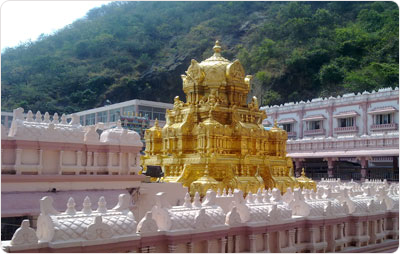





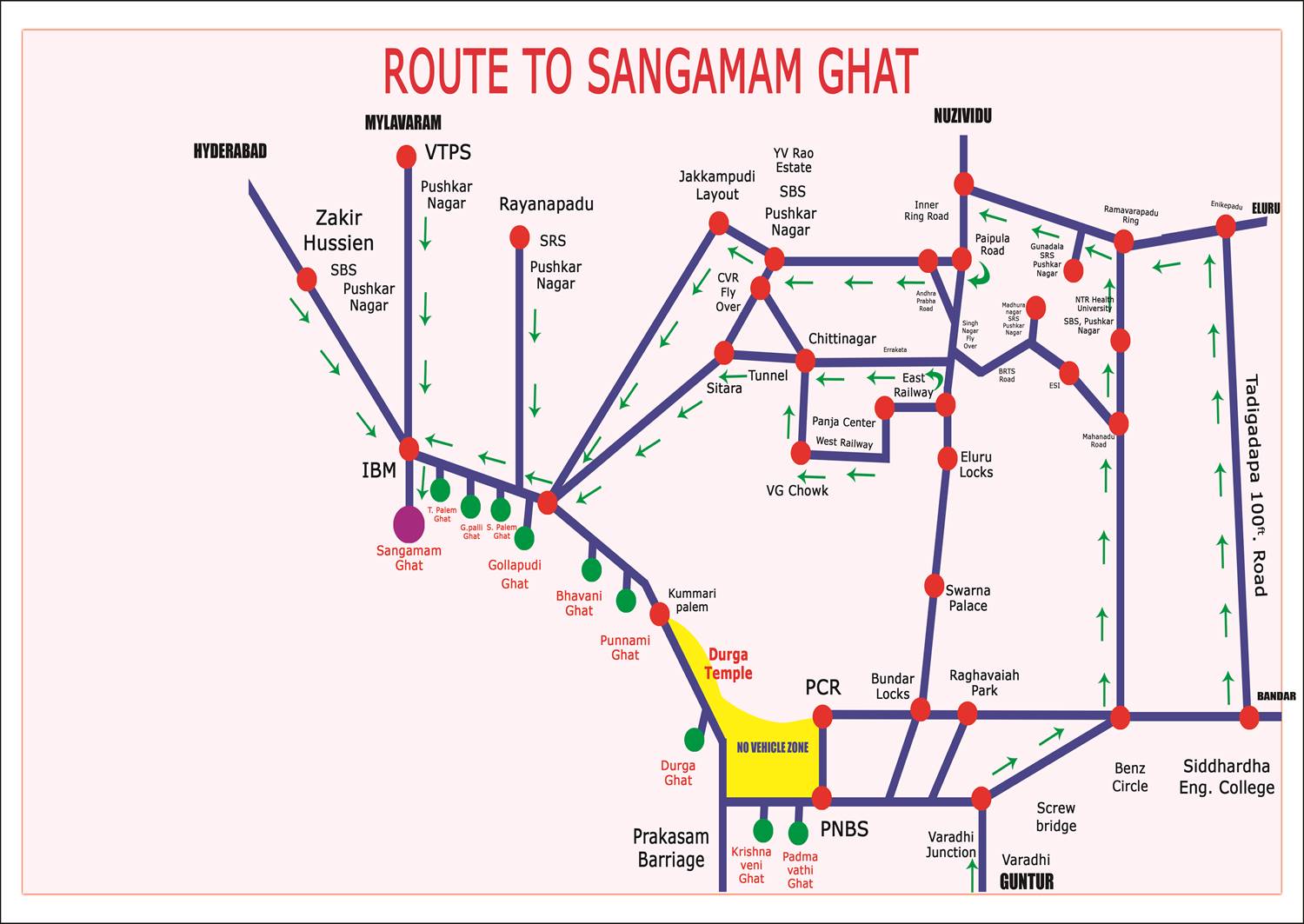
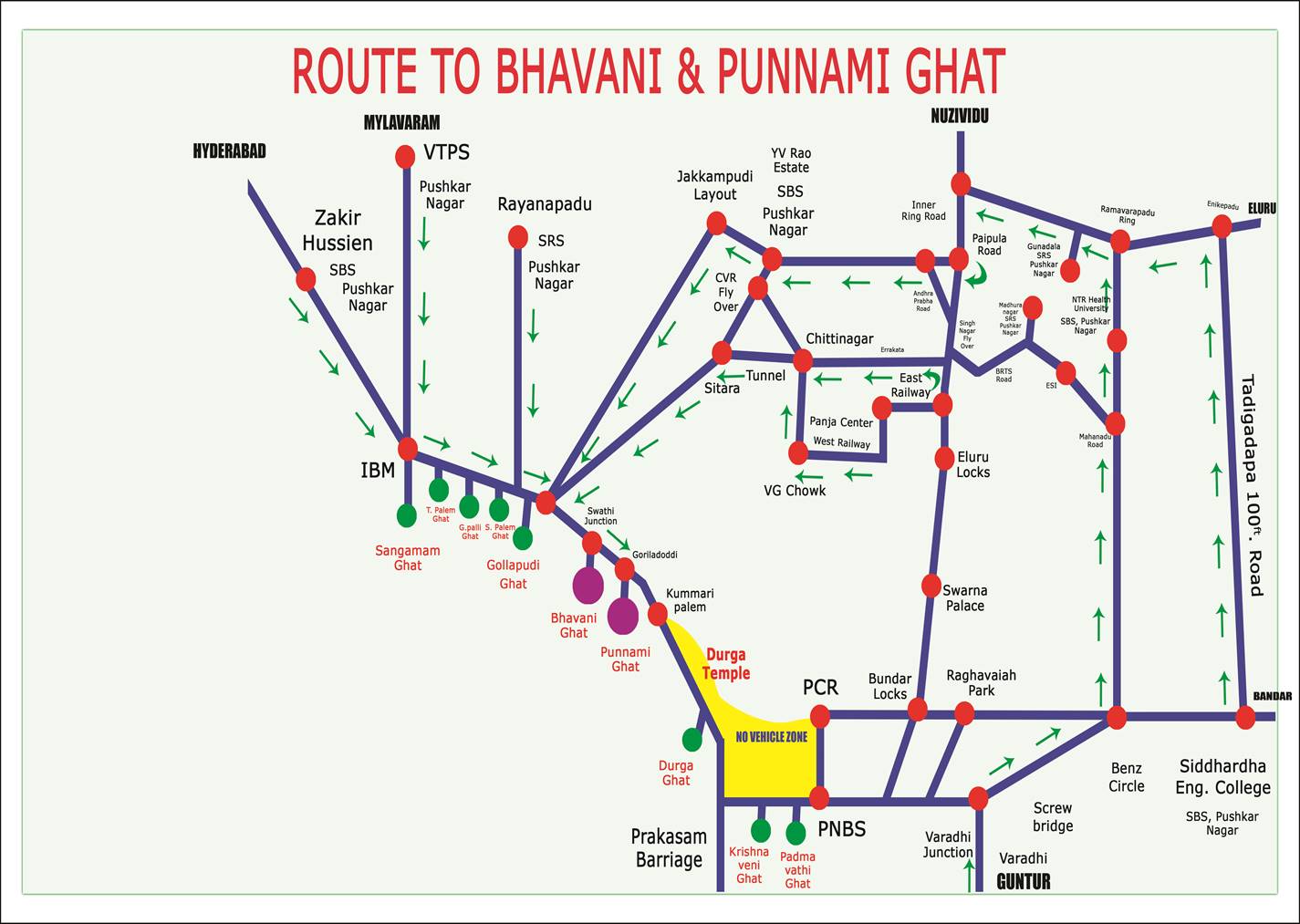
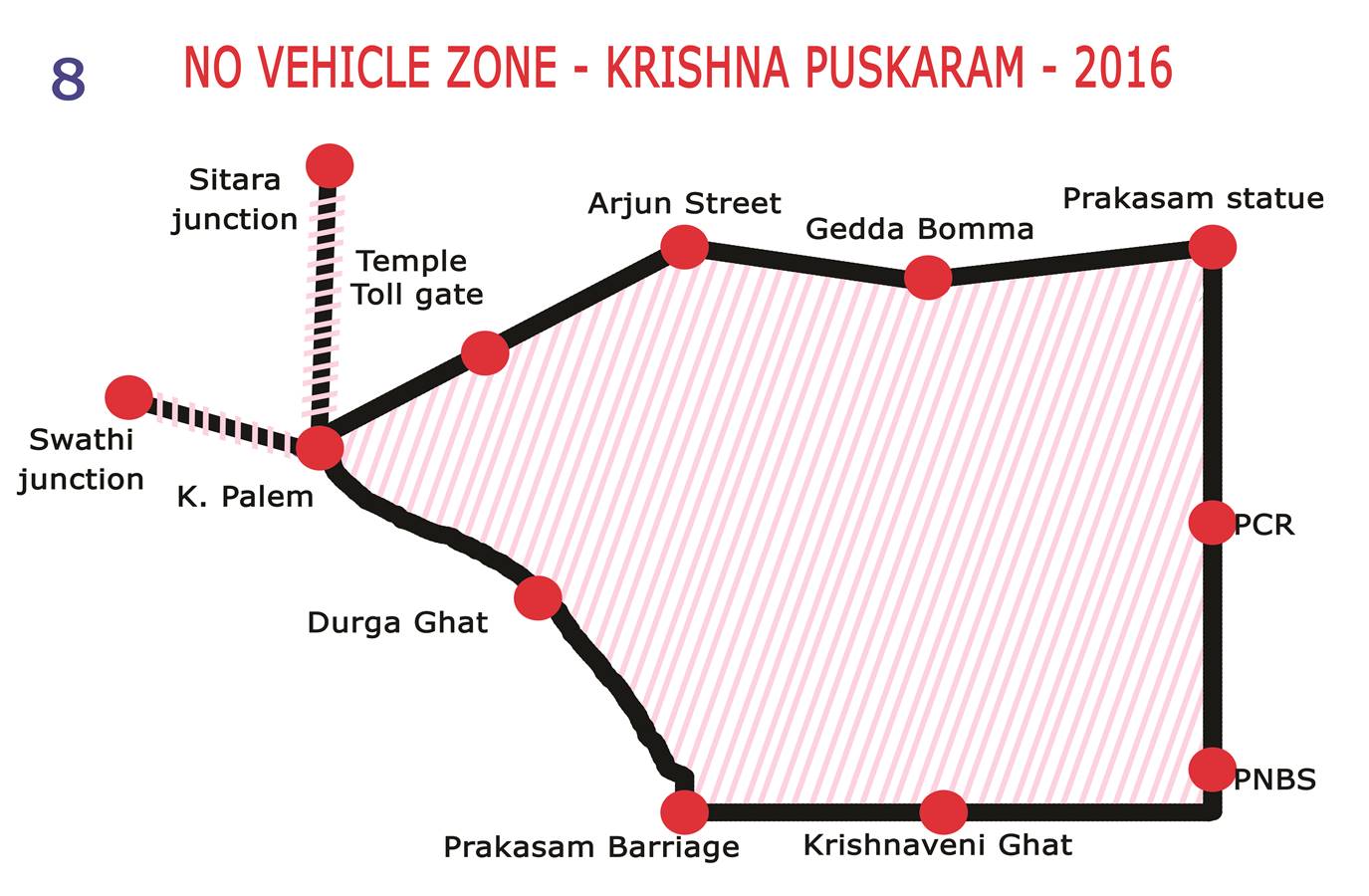
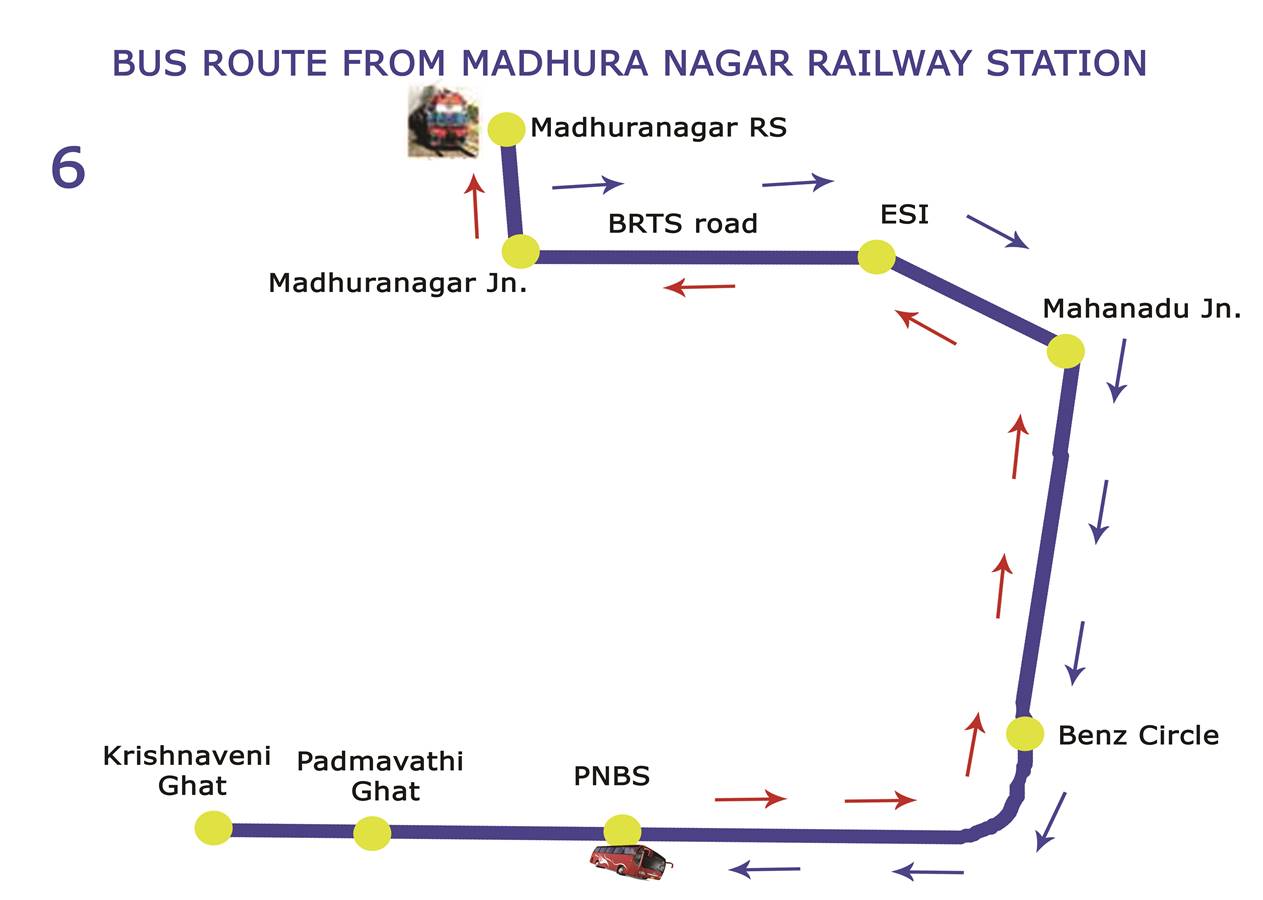
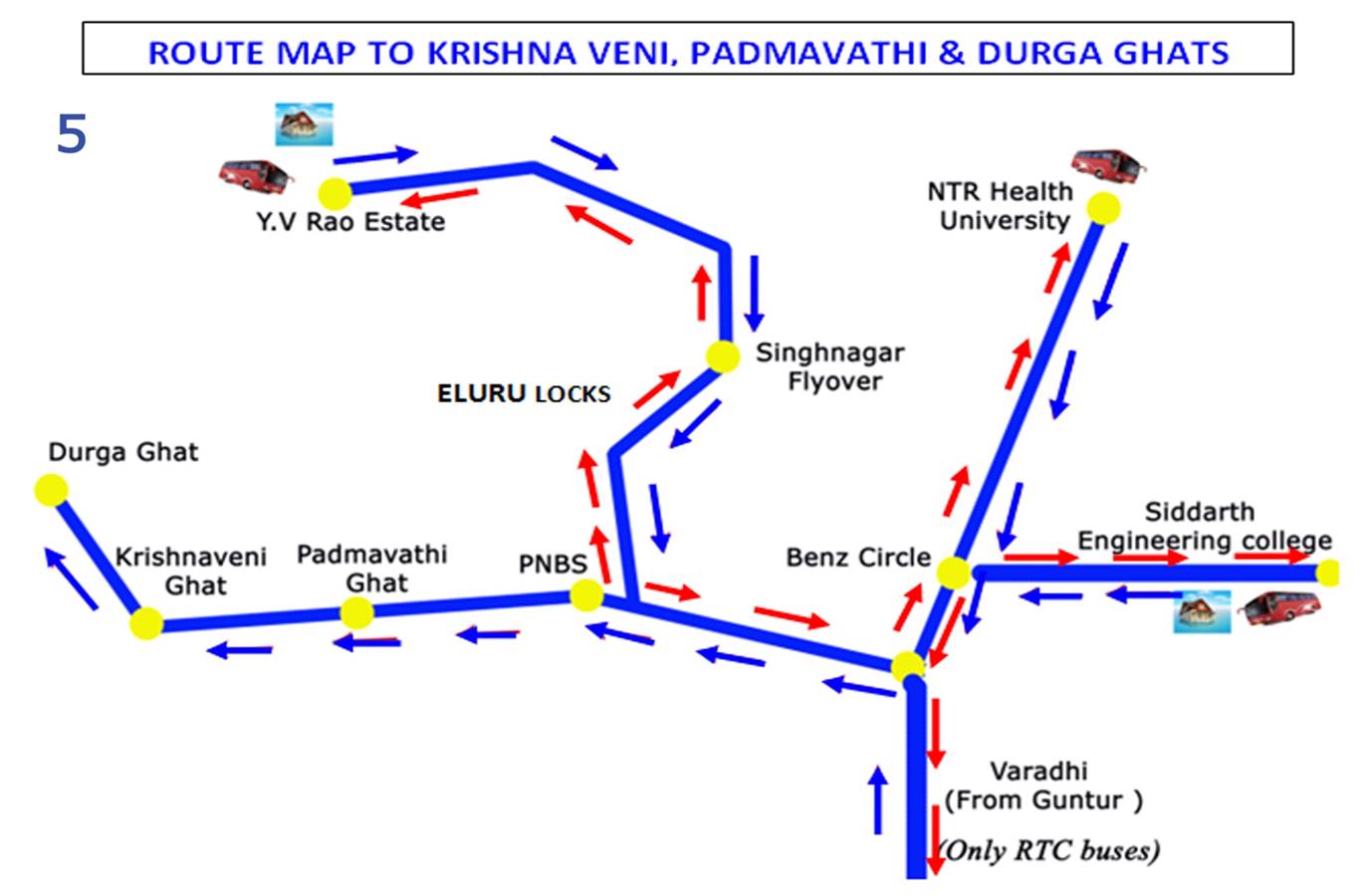
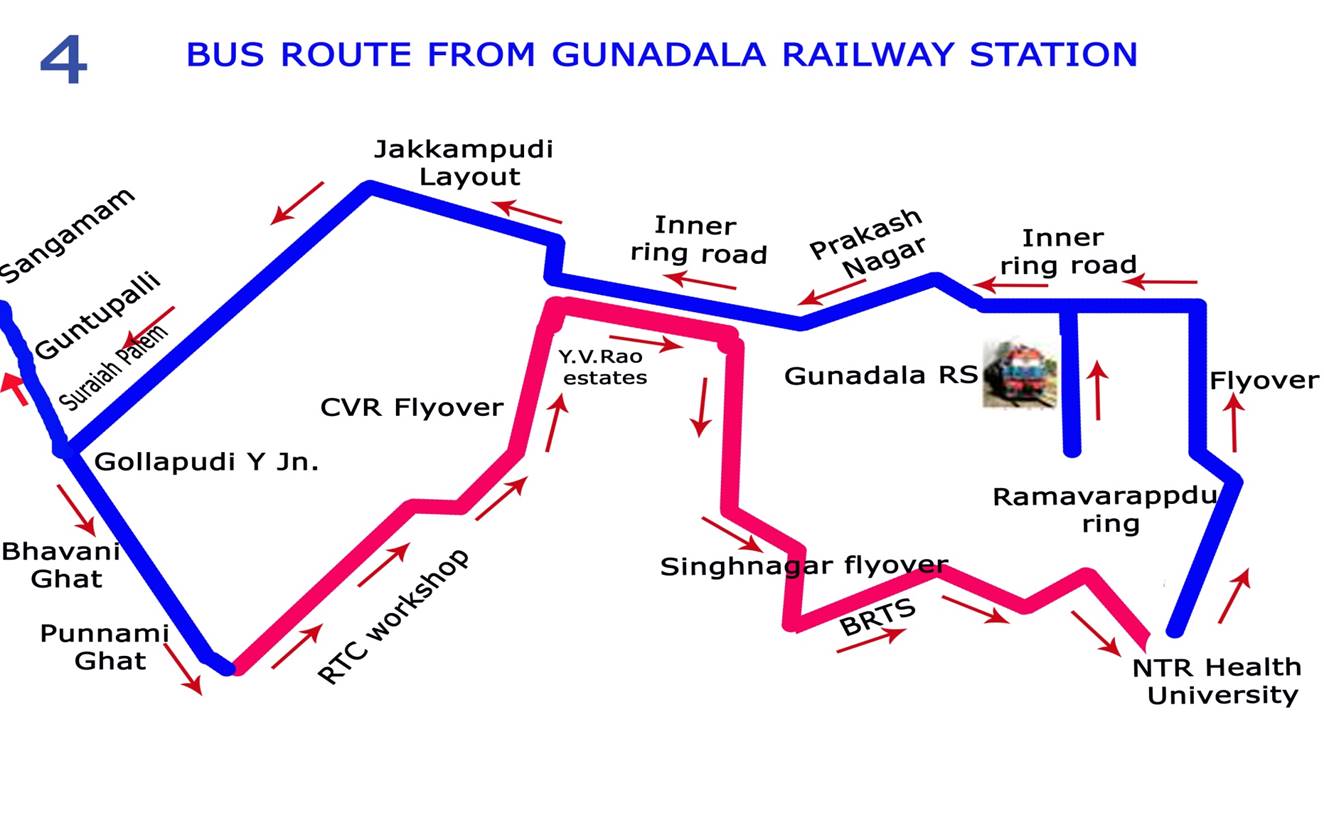
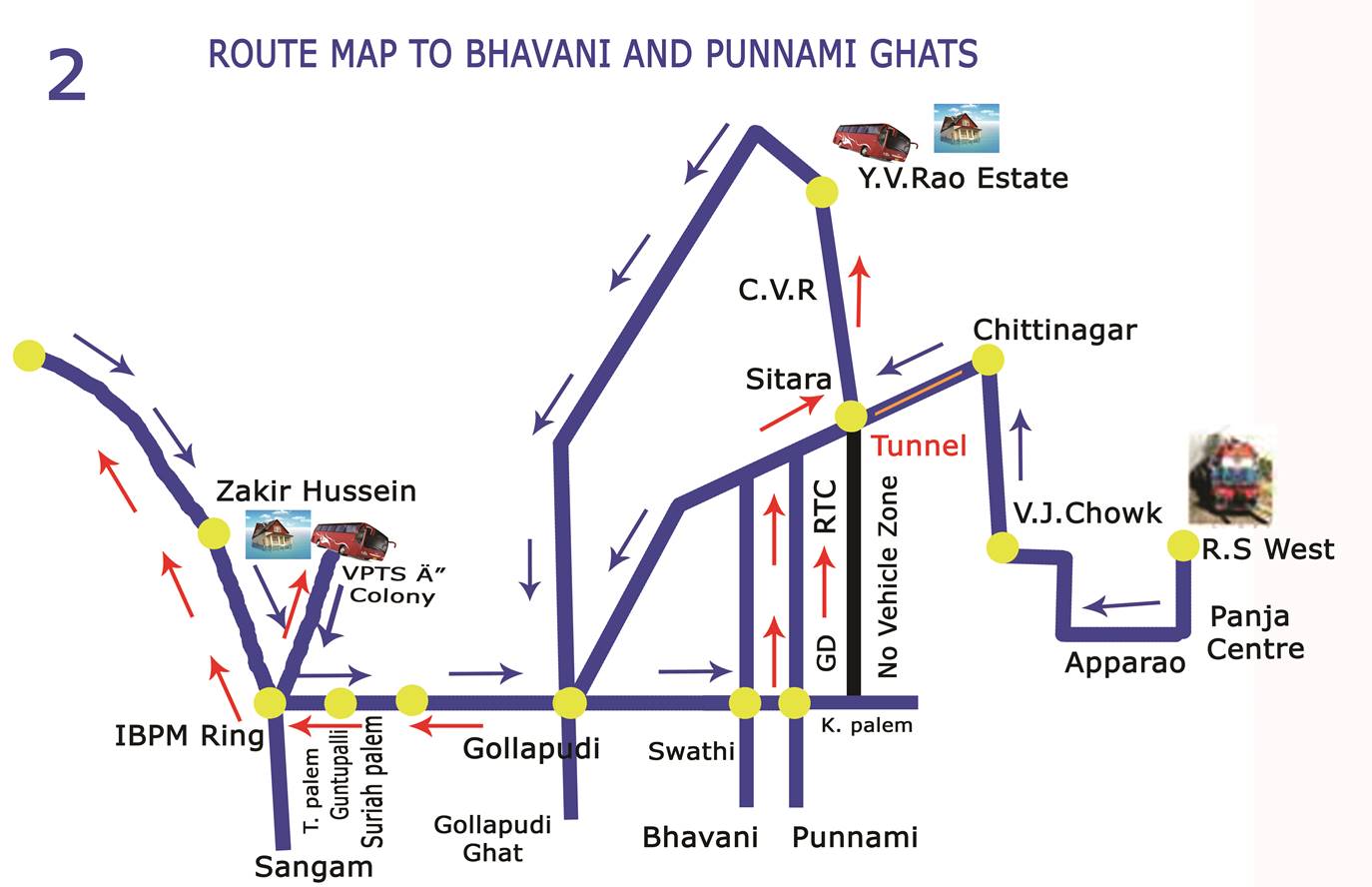
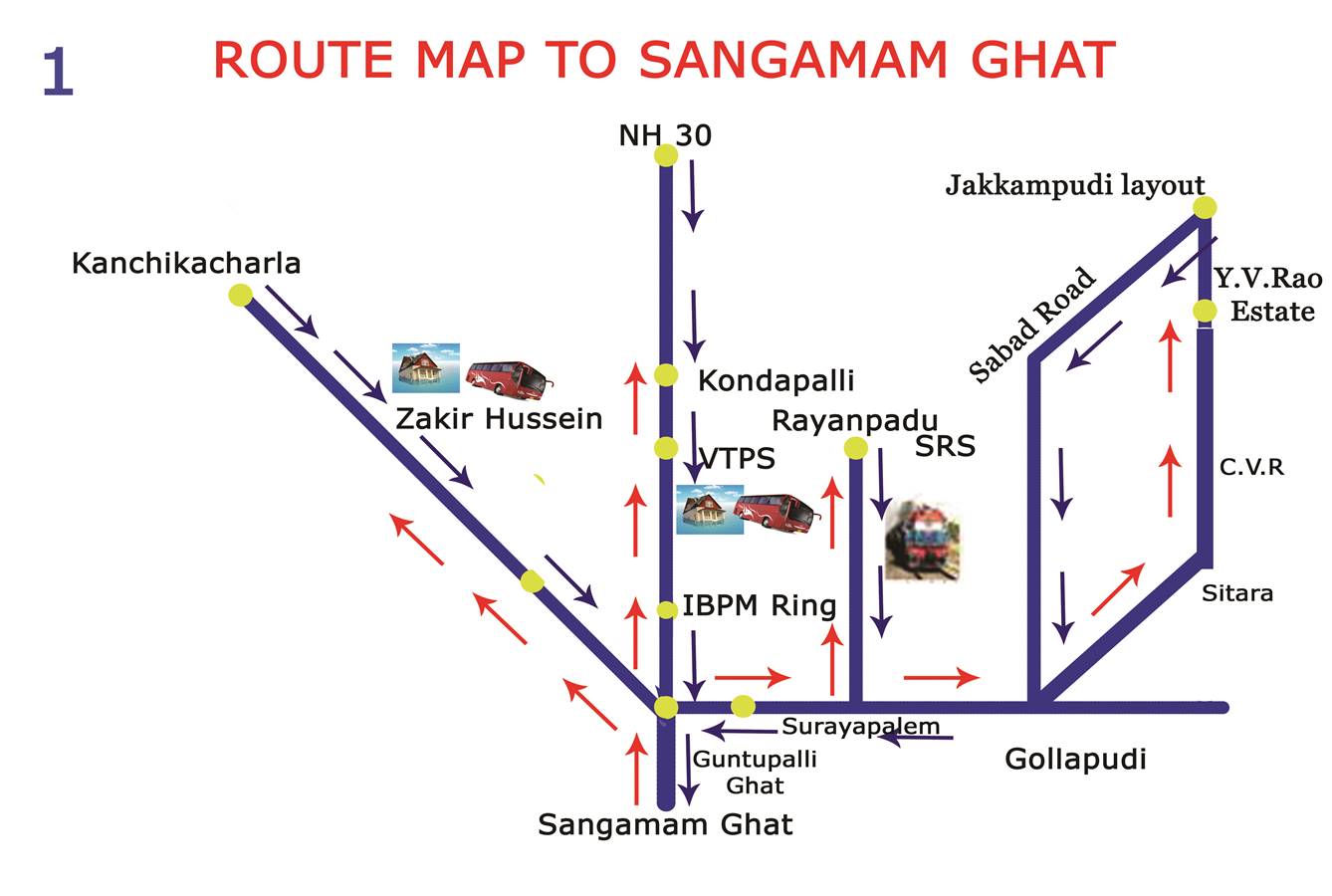
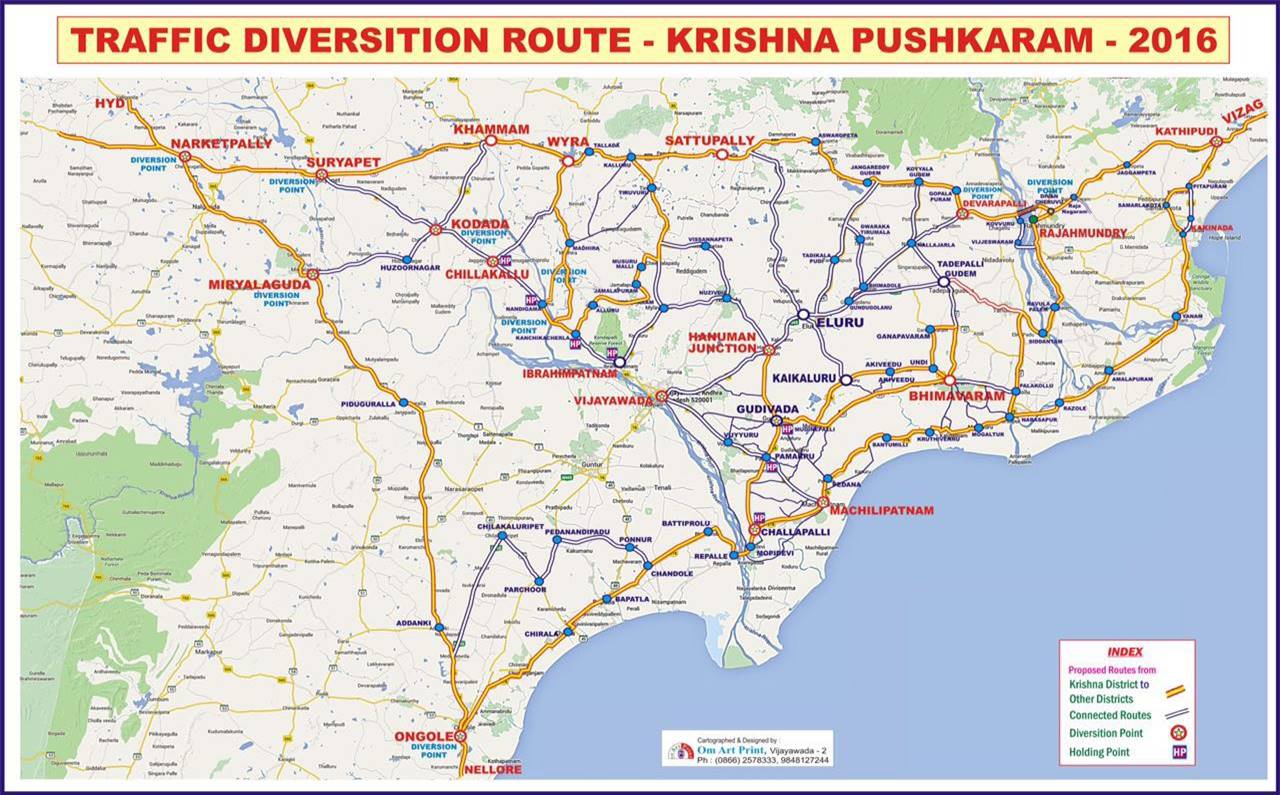
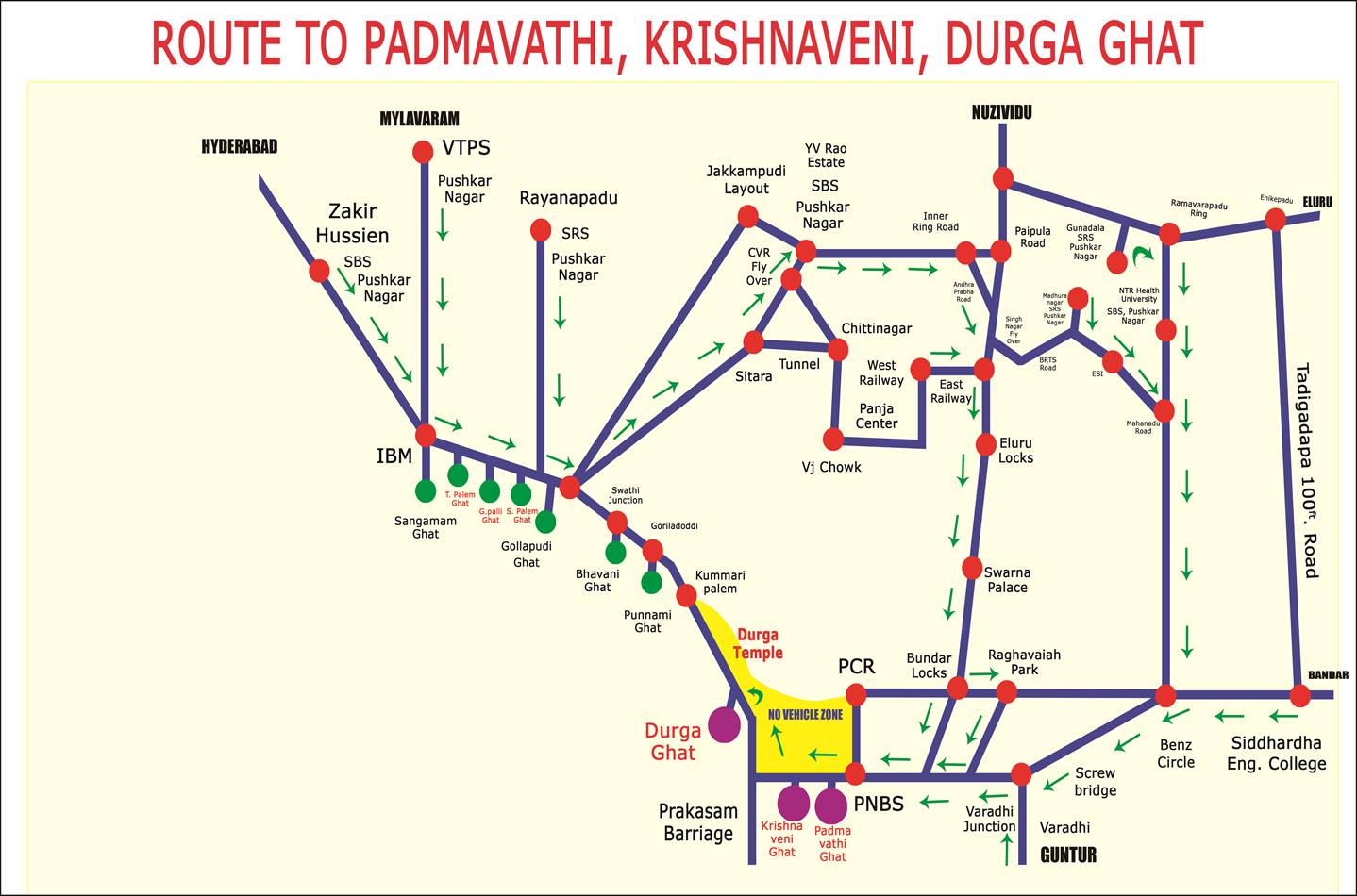
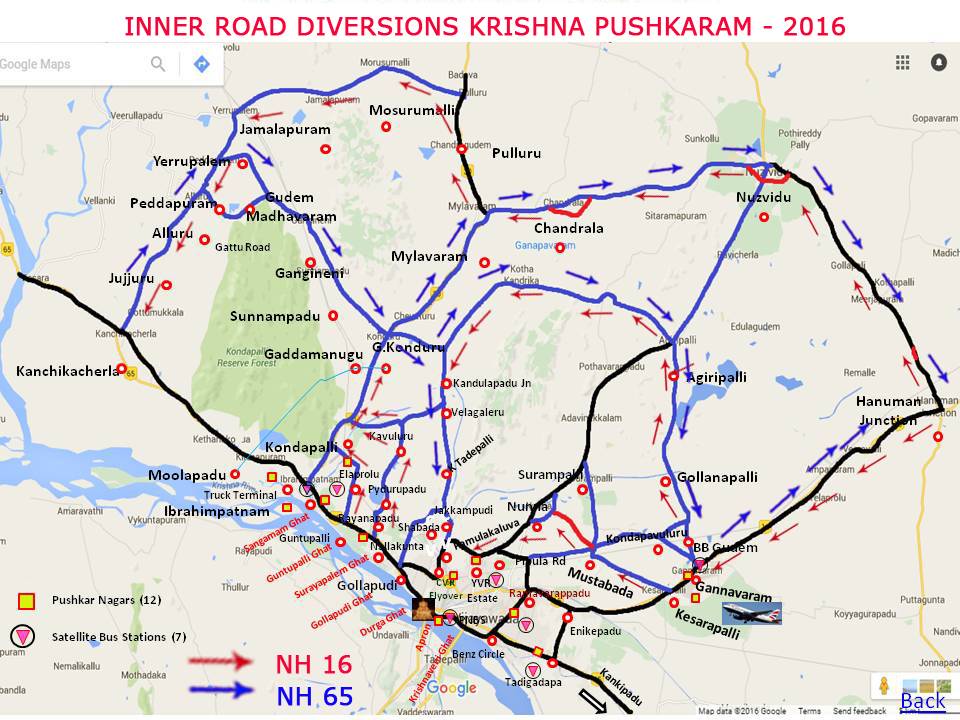
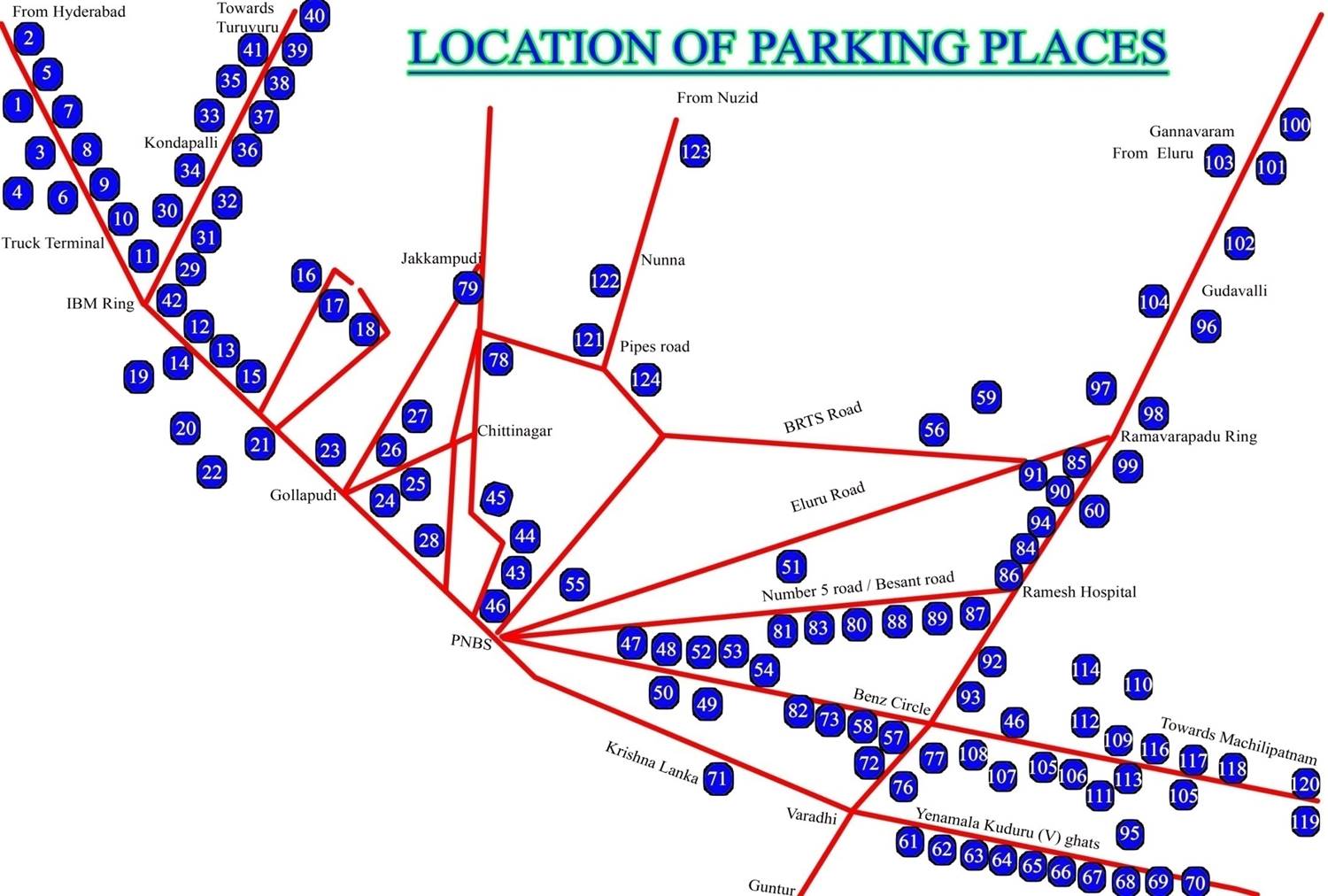
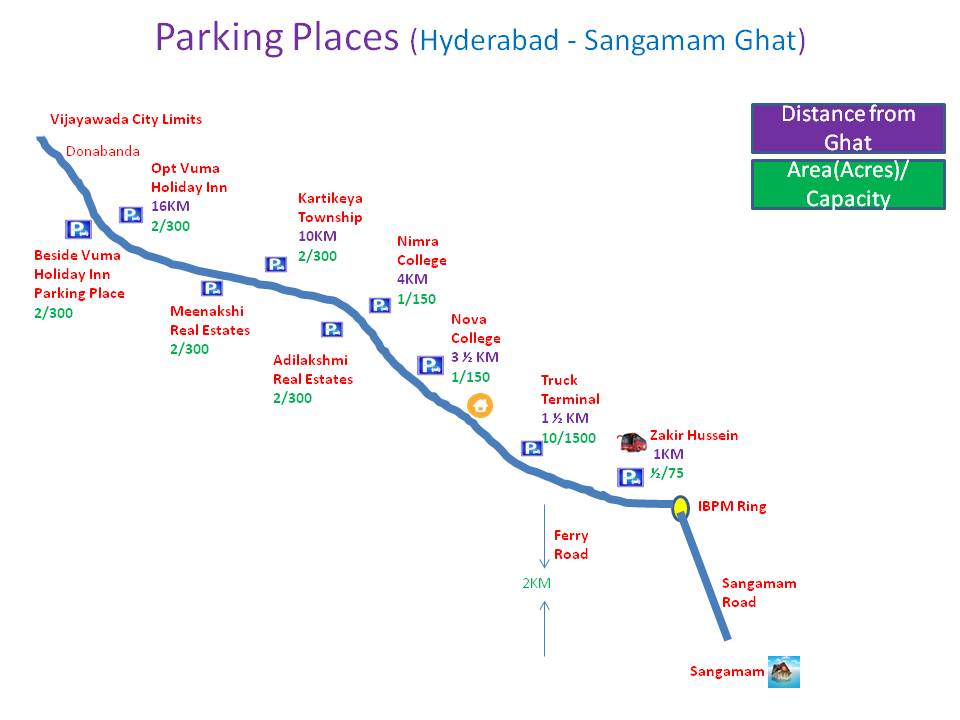
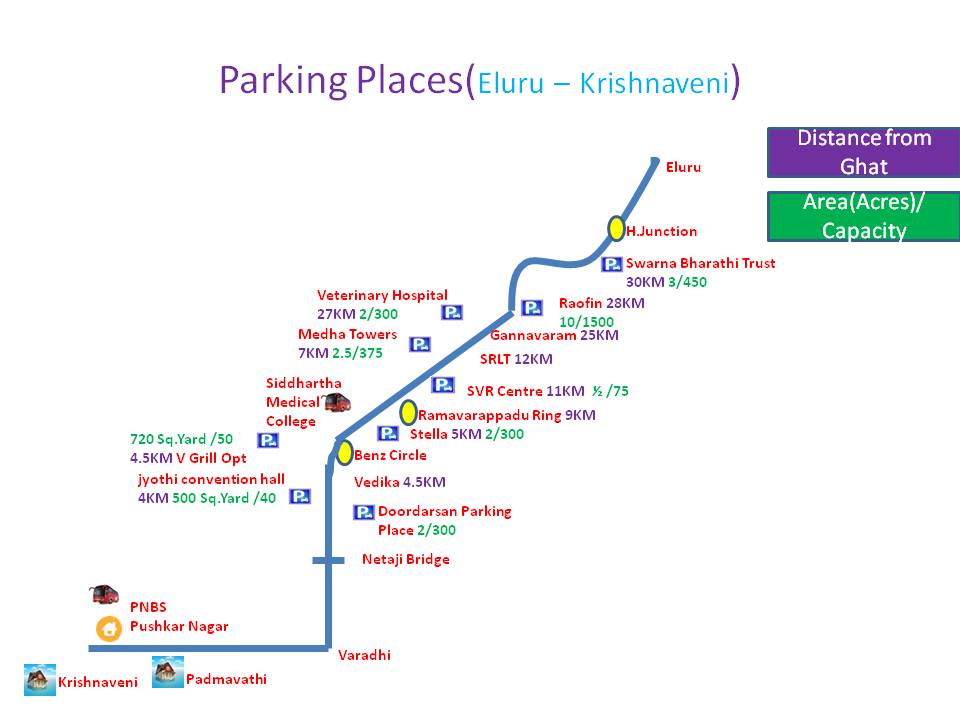
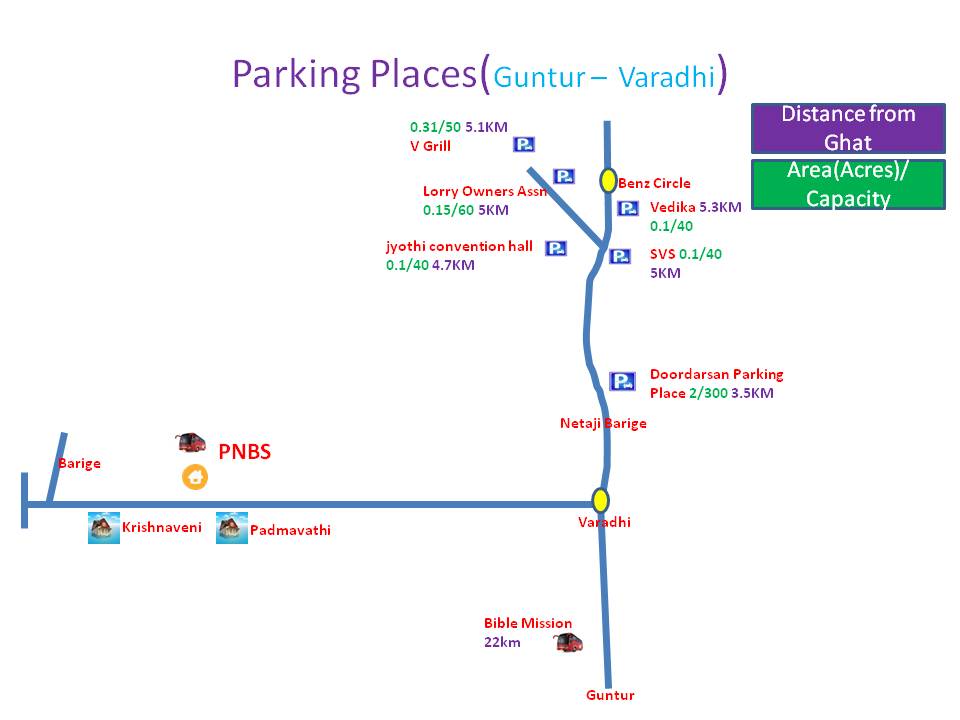
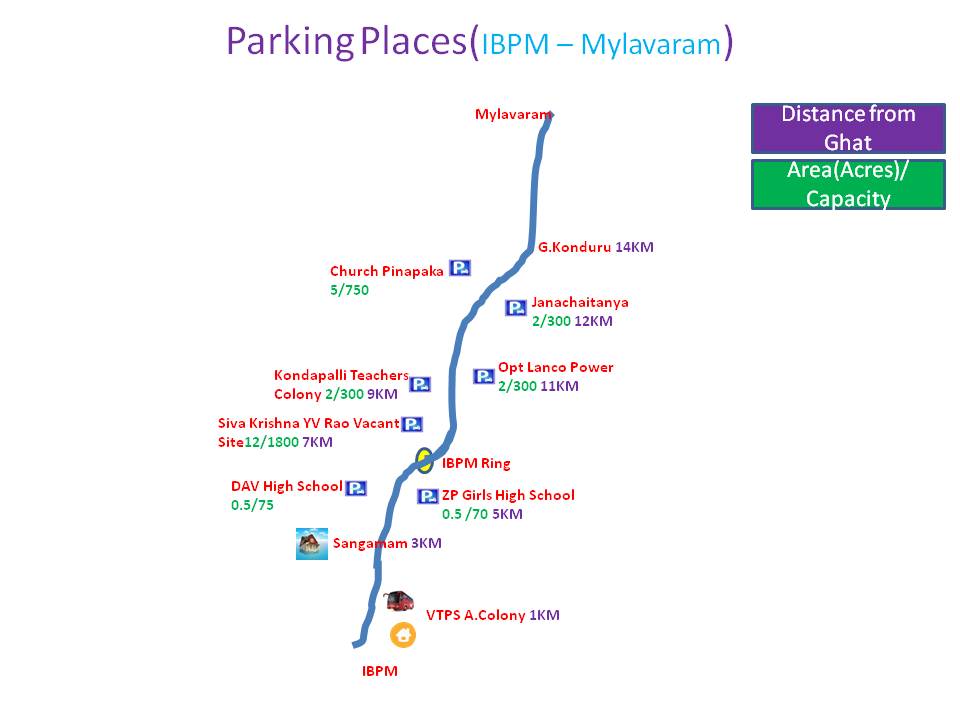
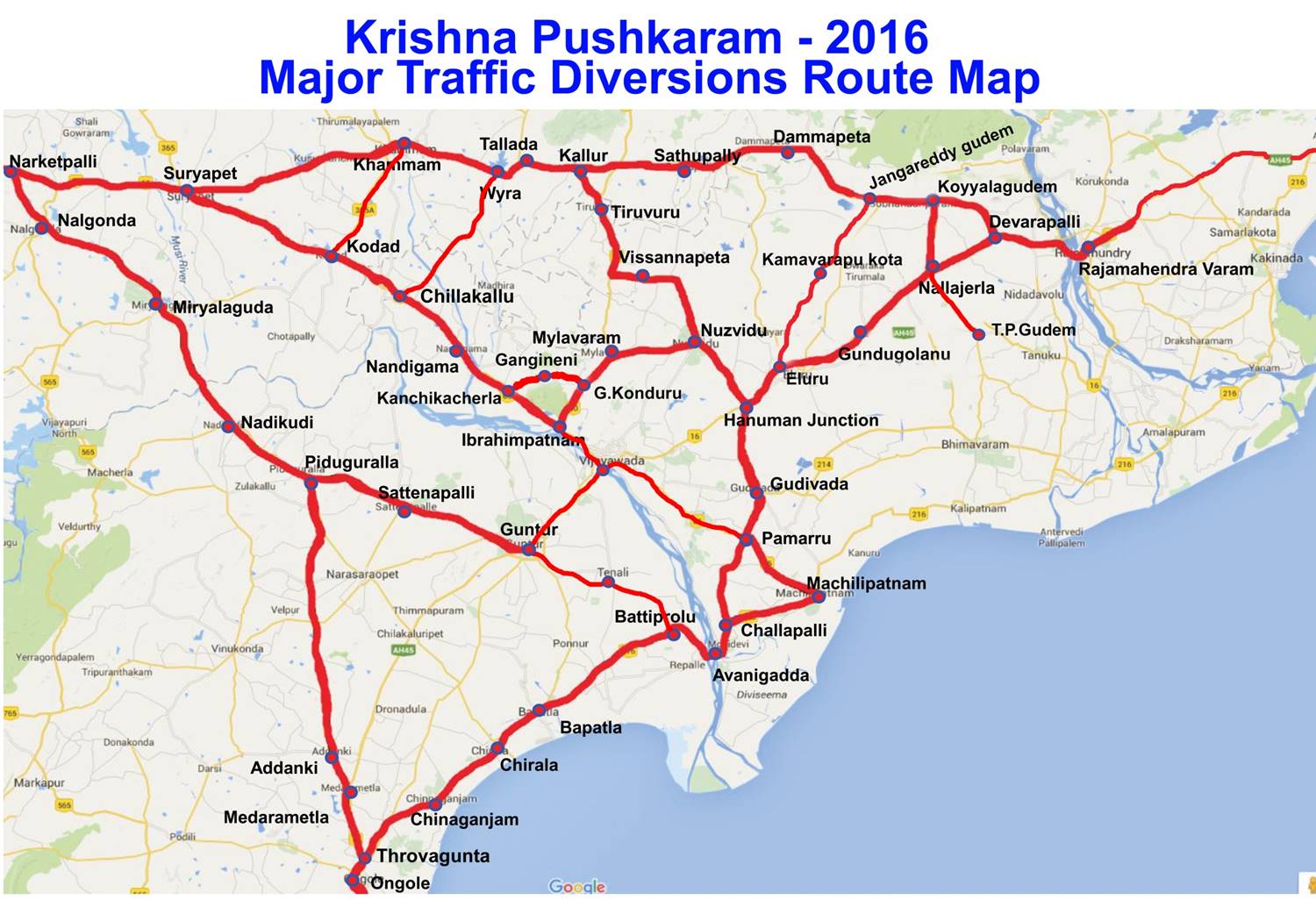
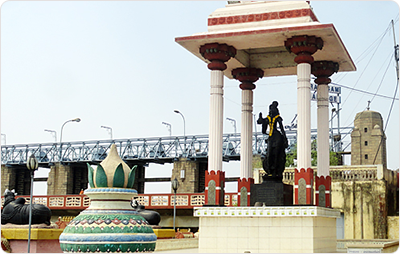
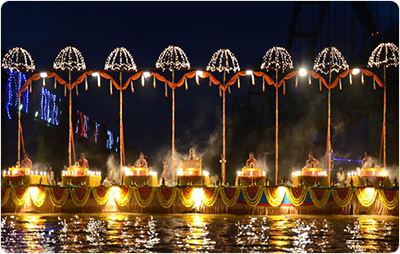

 Your feedback has been received.
Your feedback has been received.